David Dinkins, New York’s first black mayor, who struggled to beat the city’s racial divide – obituary
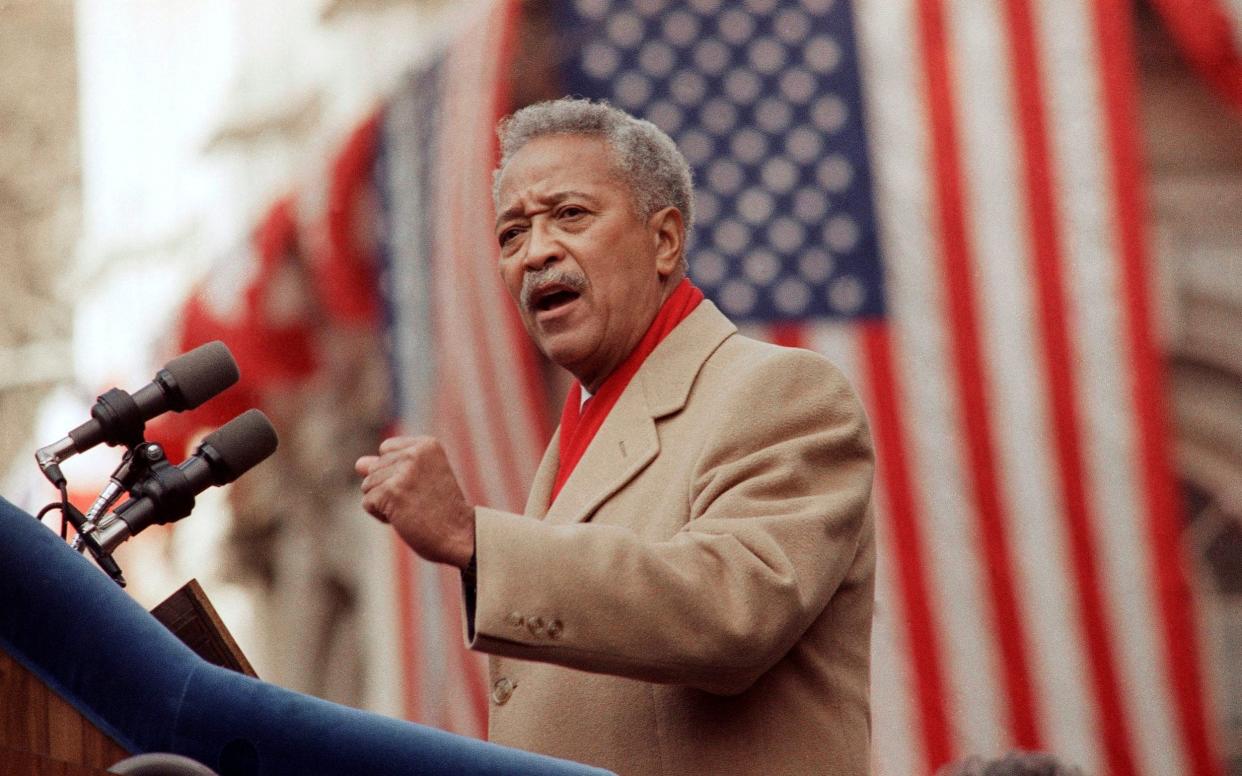
- Oops!Something went wrong.Please try again later.
David Dinkins, who has died at the age of 93, was the first and only black mayor of New York, a genteel, dignified figure who aimed to heal his city’s racial divisions and was bitterly disappointed at his ultimate failure.
A lawyer and long-time political functionary, Dinkins was the 106th mayor, coming to office in 1990 after he comfortably beat first the incumbent Ed Koch for the nomination, and then the Republican Rudy Giuliani by a whisker, only to lose to the latter four years later.
“Racism, pure and simple,” was how he described both the narrowness of his initial victory over Giuliani and his subsequent defeat to him.
New York in the early 1990s was a troubled place, riven by racial discord with a drug epidemic, alarming levels of homelessness and rampant crime; the homicide rate in Dinkins’s first years would rise to more than 2,200 per year (in contrast, last year it stood at 318).
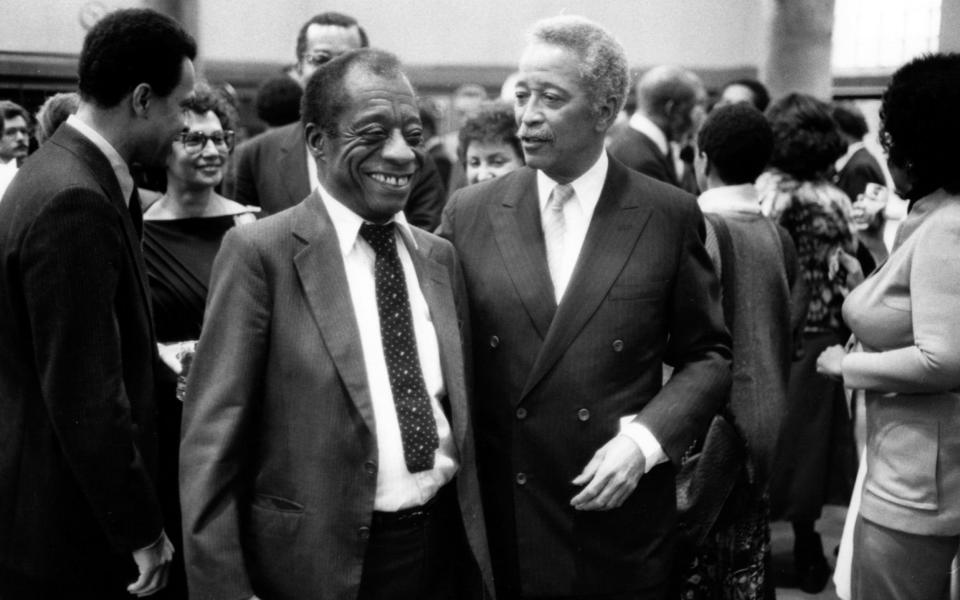
The enthusiasm for the healing potential his election represented for black communities was encapsulated by a lyric in the popular 1990 track by the rap group Tribe Called Quest, Can I Kick It? “Mr Dinkins would you please be my mayor? You’d be doing us a really big favour.”
It was a responsibility Dinkins embraced. At his inauguration on January 1 1990, he told a crowd of 12,000: ‘’I stand before you today as the elected leader of the greatest city of a great nation, to which my ancestors were brought, chained and whipped in the hold of a slave ship. We have not finished the journey toward liberty and justice, but surely we have come a long way.”
Dinkins liked to refer to New York’s melting pot of diverse communities as a “gorgeous mosaic”. But despite his ambition to heal the discord amplified by the case of the Central Park Five, in which five black boys were wrongly convicted of the rape and beating of a white jogger, which played out during the election campaign, it would prove his undoing.
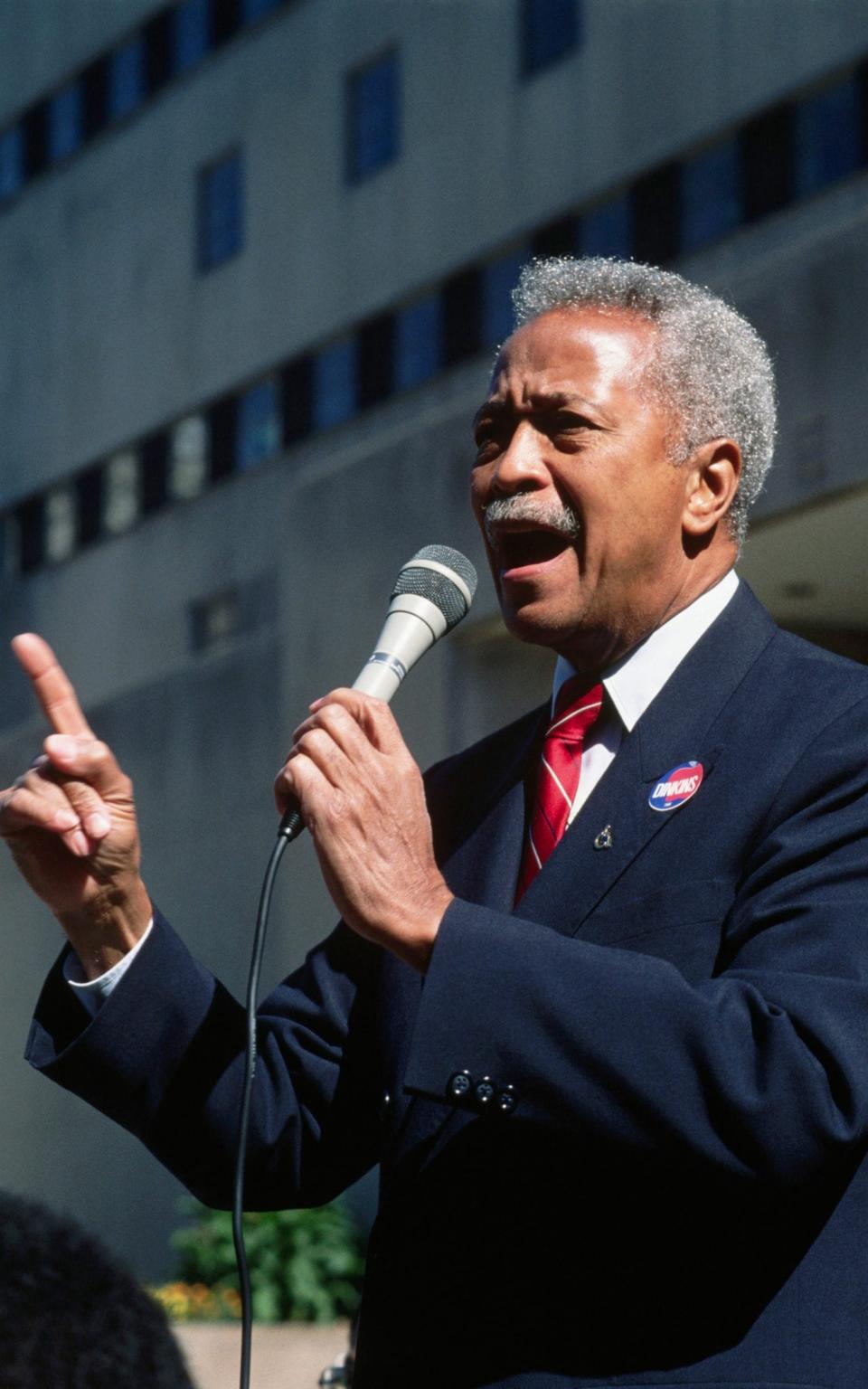
His mayoralty floundered after he was criticised for failing to act decisively to calm racial tensions following unrest between black residents and Hasidic Jews in the Crown Heights neighbourhood of Brooklyn. His agenda was further hampered by a persistently sluggish economy. City Hall insiders, including allies, complained that he was indecisive and unable to prevent internal squabbling and backbiting.
In a bid to tackle soaring crime rates, Dinkins ordered both a mass expansion in police numbers and the creation of city-wide after-school programmes, twin legacies that can still be observed in New York today. His other major mark was left on Times Square, transformed from a seedy neighbourhood of sex shops and shady characters into a tourist Mecca.
David Norman Dinkins was born in Trenton, New Jersey, on October 10 1927. His father William was a barber while his mother Sarah, known as “Sally” (née Lucy), was a dollar-a-day domestic servant. The couple, who had moved from Virginia the year before his birth, separated when he was six, and the young David was mostly brought up by his father and his second wife, Lottie Hartgell.
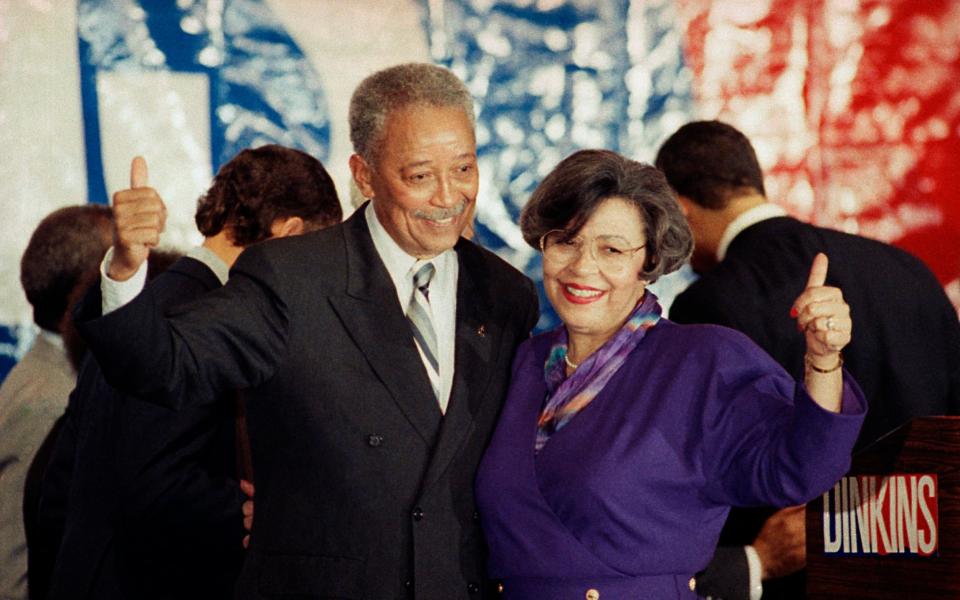
He was considered a good student at Trenton Central High School; after graduating in 1945 he served briefly in the army but dreamed of joining the Marines, only to be thwarted after his local recruiting station said they had “filled their quota of negro marines”. He finally found a recruiting station which would accept him – by which time the Second World War was over.
He was discharged in 1946 and, thanks to the GI Bill, which provided free college education for Second World War veterans, enrolled at the historically black Howard University in Washington, majoring in Mathematics
There, Dinkins met and married Joyce Burrows, who had been studying Sociology. On graduating, the couple moved to the Harlem neighbourhood of New York, where the Burrows family lived. In 1956, Dinkins gained a degree from Brooklyn Law School while working nights at his father-in-law’s liquor store.
Dinkins was in private legal practice until 1975, simultaneously – and slowly – rising through the echelons of the Democratic Party hierarchy, first in Harlem and later Manhattan and across New York. For 10 years he held the somewhat mundane post of city clerk, responsible for marriage licences and municipal records. He also served as a one-term state assemblyman. In 1985 he won, at the third attempt, election as Manhattan borough president.
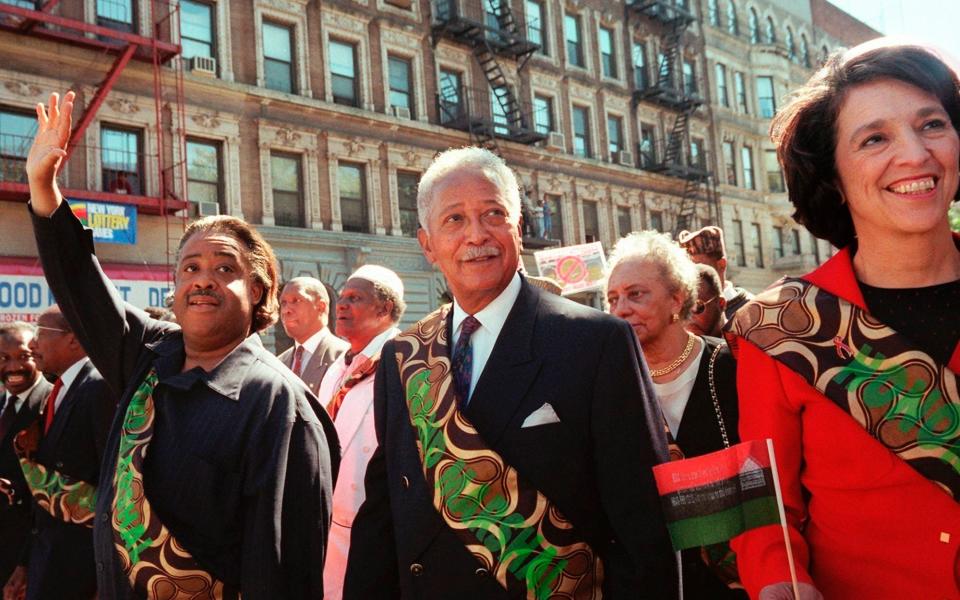
By the time he became mayor Dinkins was 62, a somewhat old-fashioned figure with a quaint turn of phrase who changed his clothes and showered several times a day. He wore elegant suits and owned four tuxedos. To relax, he played tennis.
Following his defeat to Giuliani, and despite his bitterness about the tone of the campaign, he invited the new Mayor to dine with him; Giuliani declined.
In his later years, Dinkins remained a high-profile figure, campaigning on behalf of like-minded Democrats including his fellow former mayor Michael Bloomberg, who he supported for the 2020 Democratic nomination. He was a professor of Professional Practice at Columbia University until his death. He was awarded the Congressional Medal of Honour.
David Dinkins’s wife Joyce predeceased him by a month and he is survived by a son and daughter.
David Dinkins, born October 10 1927, died November 23 2020

